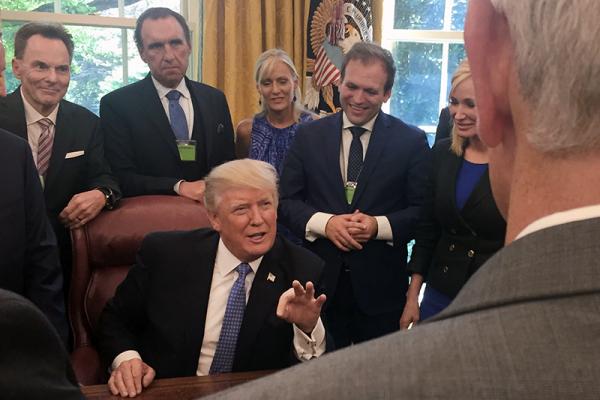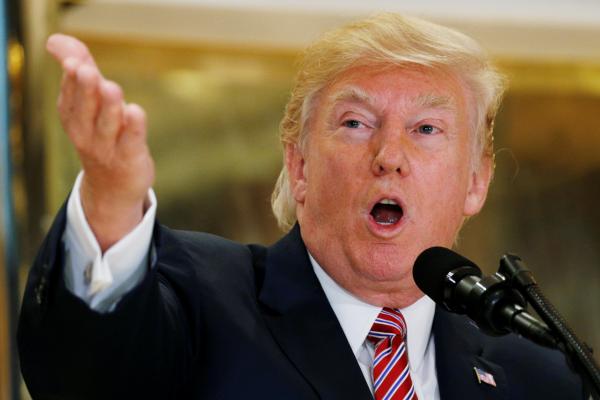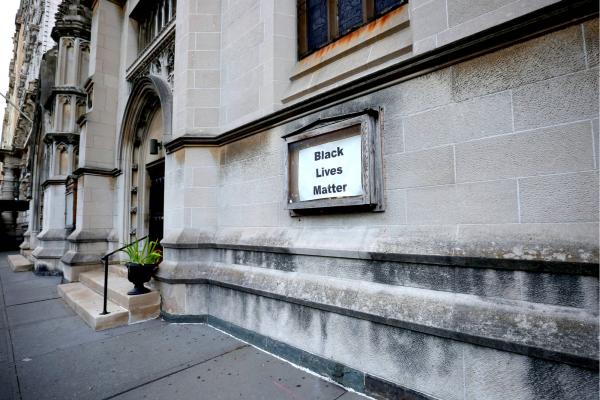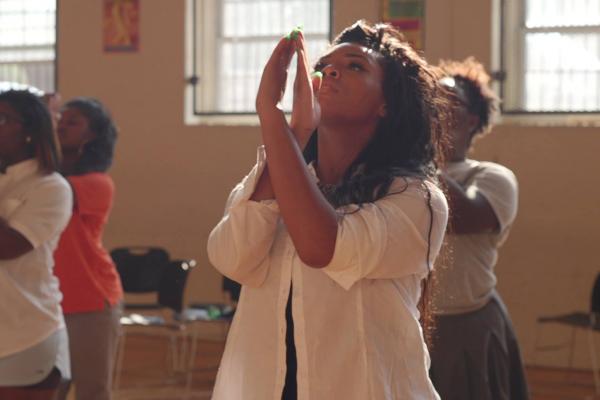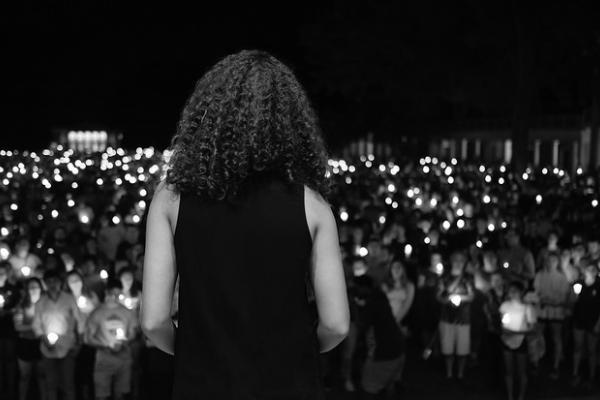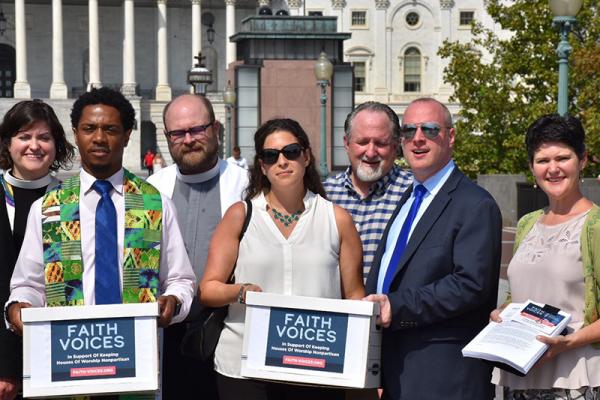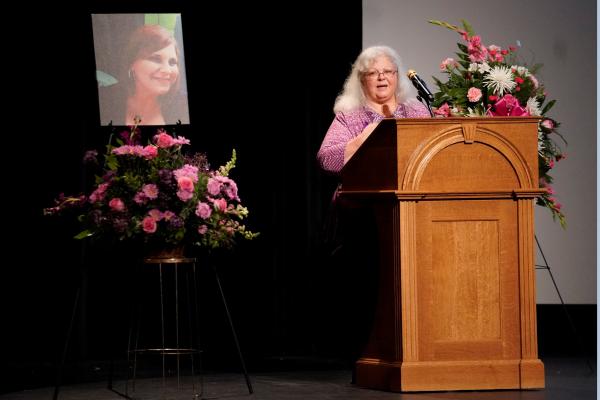In their greed these teachers will exploit you with fake news. Their condemnation has long been hanging over them, and their destruction has long been sleeping. — 2 Peter 2:3
On Wednesday, when President Trump shut down his business advisory committees just ahead of his business advisers’ resigning en masse in the wake of Charlottesville, one of his evangelical advisers, Johnnie Moore, delivered a statement on ABC News that concluded the following.
Thousands gathered in front of the White House on Tuesday calling on the administration to protect the Deferred Action for Childhood Arrivals, the executive action signed by President Barack Obama that protected 800,000 young people from deportation. They were able to receive work permits and stay in the U.S. in exchange for providing their information and going through background checks. Now, DACA is in the hands of the Trump administration — and the program is under threat by Texas Attorney General Ken Paxton and nine other state-level officials who plan to sue if the Trump administration does not cancel DACA by Sept. 5.
President Donald Trump dug in defiantly on Thursday in his response to racial violence in Virginia, echoing the position of white nationalists by intensifying his opposition to the removal of monuments to the pro-slavery Civil War Confederacy.
Last week’s event in Charlottesville that resulted in the death of Heather Heyer is a clear reminder of the unresolved and persistent struggle of our nation with the sin of racism. For more than five years (not referring to the historical struggles) the African-American community has been raising its collective voice, calling out our nation to the pervasive, often deadly, effects of racism. These “deadly effects” are experienced not only in the actual killing of African Americans in the streets of our cities, but also in the denial of full access to the benefits and privileges of our socio-economic systems.
It’s a powerful setup, and the girls’ (and their team’s) journeys are inspiring. But it’s hard to shake the feeling that Lipitz is more concerned with crafting a tidy, three-act narrative than with taking an honest look at who these girls are, and the issues they face.
Chanting "love wins" and singing hymns and songs, the vigil attendees in Charlottesville held small candles in a striking visual rebuke to the torches that swept through just days earlier.
“As a leader in my religious community, I am strongly opposed to any effort to repeal or weaken current law that protects houses of worship from becoming centers of partisan politics,” reads the letter faith leaders who support church-state separation delivered to Congress on Wednesday.
How would you describe Clinton’s faith? What are your impressions of her religious and spiritual life?
She’s a very deeply committed Christian. I know many people are critical of that and don’t believe it, but in my heart of hearts, from the conversations that we have had and from the good that she does, she’s a deeply committed disciple of Christ. And she’s a good Methodist. Methodists don’t talk about their faith very much. She doesn’t wear her religion on her sleeve, but I know that she practices it and she has spiritual disciplines, including reading the Scriptures every day and praying every day. People aren’t going to want to believe that, but it is true.
With tears and defiant tributes, hundreds of purple-clad people packed an historic Charlottesville theater to remember the 32-year-old woman killed when a suspected white nationalist crashed his car into anti-racist demonstrators.
"They tried to kill my child to shut her up. Well guess what? You just magnified her," Heyer's mother Susan Bro said to long and loud applause from those gathered at the city's 1930s-era Paramount Theater.
Of the many shocking images from Charlottesville, one continues to haunt me. White men, mostly younger, are marching and carrying torches in the night with faces full of grim hate and determined anger. It was malevolently reminiscent of the Ku Klux Klan’s torch-lit night rallies, with cross burnings and the evil actions and killings that often followed. Even more, it brought memories of the Nazis marching with their torches, slogans, and violence in the 1930s. The neo-Nazis in Charlottesville chanted some of those same slogans.
